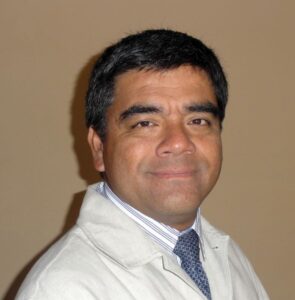Advent Devotional | Day 21: Jesus and the Challenge of Loving Like God
Jesús y el desafío de amar como Dios
The Lord said to me, “Go, show your love to your wife again, though she is loved by another man and is an adulteress. Love her as the Lord loves the Israelites, though they turn to other gods and love the sacred raisin cakes.”
– Hosea 3:1
The book of Hosea is framed in the tragic experience of Hosea’s marriage produced by the scandalous infidelity of his wife. In the first pages, the prophet opens his heart to us to understand why, despite the humiliating outrage experienced, he does not make the decision to separate or divorce her. On the contrary, in the midst of the immensity of his suffering, Hosea felt a deep calling to restore his marriage. But returning to his wife confronted him with the fear of a new hurt, that she would cheat on him again and abandon him. Faced with this possibility, an implicit question appears in the story: What must I do so that she will never be unfaithful again?
This prophetic biography reaches unexpected heights when, through the heartbreaking experience of his own marriage, Hosea discovers God’s immeasurable pain caused by the immoral and irrational infidelity of His own people. Despite the disloyalty and ingratitude of seeing Israel worship other gods, God reveals Himself incapable of completely destroying her or exchanging her for another, better people. Hosea discovers that God’s love is much greater and stronger than the infidelity of His people and that of Hosea’s own wife. God’s passionate and faithful love ceased to be an abstract theological concept and became a powerful motivation and life-giving force to fight to save his marriage and regain the love of his wife.
Simply put, just as God cannot abandon His unfaithful people, Hosea could not abandon his spouse. With His example, God challenged His prophet to go beyond the logic, ability and behaviour of a normal husband. Hosea, as he emulates God, discovers deep in his soul that he does not want to punish his wife but rather wants her to return to him and never leave him again. He learns that only the path of undeserved, unconditional love, not threats, would achieve this miracle. Thus, the words about punishment, regardless of whether they are executed or not, basically have a pedagogical function: to communicate the seriousness of infidelity.
In the midst of the breakup of his relationship, Hosea experienced a profound change. His marriage went from being a relationship based on “duty” (remember that Hosea gets married in response to an order from God) to a relationship based on “love.” He learned tenderness is an effective antidote to prevent and cure the devastating effects of infidelity. Through his tormented marriage and his efforts to save it, Hosea fulfills his mission as a prophet. In other words, he discovers God’s will for His people as he discovers God’s will for himself. Hosea, then, preaches about God as a loving and compassionate husband who cannot stop loving his wife, even when she is unfaithful to him.
Incredibly, Hosea knows something of what it feels like to be God who forgives the unforgivable. God does not just forgive us when we ask Him to. Rather, in the face of our sin, while we were yet sinners, God did not stop loving us but provided for our forgiveness through the person and work of Jesus. God’s final action, therefore, is not punishment but to continue and continue and continue loving us. And as we are so loved, God’s way of loving becomes the way humans can and should love. “Husbands, love your wives, just as Christ loved the church and gave himself up for her…” (Ephesians 5:25).
In the city of Lima, where I live, two out of every three marriages end in divorce. At the age of twelve, I watched my parents’ marriage come to an end. Statistics show that children of divorced parents tend to divorce more, but God invites me to love my wife as Christ loved me, not as my father loved his wife. And this, against the odds, has sustained my marriage for more than 30 years.
What a joy to celebrate the coming of Jesus, the Messiah-husband, who revealed this love and embodied this truth! May our experience of His love transform us into those who give undeserved and unconditional love to others.

Alex Chiang
Lima, Peru
Alex Chiang is a local church pastor, the Regional Coordinator for Langham Preaching in Latin America, and the author of numerous books. Alex and his wife, Elke, live in Lima, Peru and have two children.